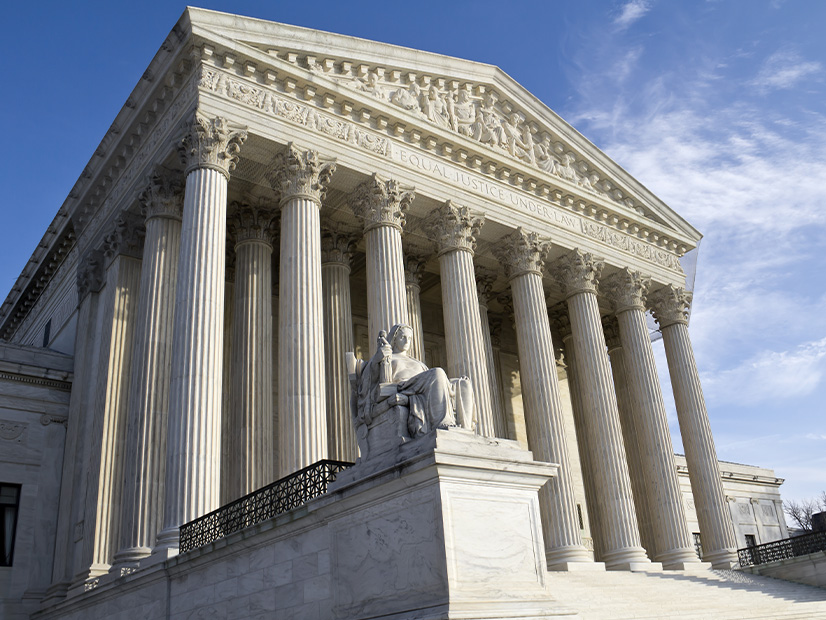The U.S. Supreme Court on Dec. 11 declined to take up an appeal of a lower court’s ruling that a Texas law giving incumbent transmission companies the right of first refusal (ROFR) to build new transmission lines was unconstitutional.
The Texas Public Utility Commission, with then-Chair Peter Lake as the lead petitioner, requested a writ of certiorari last December after the 5th U.S. Circuit Court of Appeals’ decision earlier in 2022. (See Texas Petitions SCOTUS to Review ROFR Ruling.)
The appeals court found for NextEra Energy in its challenge to a 2019 Texas law (Senate Bill 1938) that set up a ROFR within state lines. It ruled the legislation violated the U.S. Constitution’s dormant Commerce Clause, and it remanded the case back to the U.S. District Court for Western Texas. (See 5th Circuit Finds in Favor of NextEra’s ROFR Appeal.)
The Supreme Court gave no reason for not taking up the appeal, as is typical. It included the rejection (22-601) among dozens of other appeals it will not take up this term.
The high court says it receives about 10,000 requests for certiorari each year. Only about 100 of those are granted, allowing petitioners to make oral arguments before the justices on why the lower court was wrong.
U.S. Solicitor General Elizabeth Prelogar in October recommended the Supreme Court not to take up the ROFR case. She said the petition is not a “suitable vehicle” for reviewing the constitutionality of ROFR laws.
“The 5th Circuit got it right that the Texas law was unconstitutional,” Paul Cicio, chair of the Electricity Transmission Competition Coalition, said in an email to RTO Insider. “Blocking new entrants from competing on transmission projects isn’t just unconstitutional; it’s anti-consumer, anti-free-market policy that costs consumers billions of dollars in higher electricity rates.”
The coalition said FERC should see the denial as a “clear signal in support of transmission competition.” It said FERC has an opportunity to take action now in a pending complaint under Section 206 of the Federal Power Act against MISO to ensure the grid operator no longer applies ROFR laws when conducting transmission planning (EL22-78). (See Big Savings for Tx Competition Claimed as FERC Considers a New ROFR.)
Most recently, an Iowa court struck down that state’s ROFR law, saying the procedure used to pass the bill was unconstitutional. (See related story, Iowa ROFR Law Overturned, Throwing Multiple MISO LRTP Projects into Uncertainty.)
NextEra Energy Capital Holdings, NextEra Energy Transmission (NEET), NextEra Energy Transmission Midwest, Lone Star Transmission, NextEra Energy Transmission Southwest, Southwestern Public Service, Entergy Texas, Oncor, LSP Transmission Holdings II and East Texas Electric Cooperative were also named as respondents in the petition.
NextEra subsidiaries were involved in two projects in Texas’ non-ERCOT footprint that ran afoul of the ROFR law. NEET Midwest won a competitive bid in 2018 for a $130 million, 500-kV project in East Texas. MISO said last year that planned capacity in the region had negated much of the project’s economic benefits. (See MISO on Verge of Cancelling Hartburg-Sabine Tx Project.)
NEET Southwest also applied to the Texas PUC in 2018 to transfer ownership of 30 miles of 138-kV facilities from Rayburn Country Electric Cooperative in SPP’s East Texas footprint. That application was withdrawn in 2020 after SB 1938 became law (48071).


